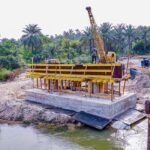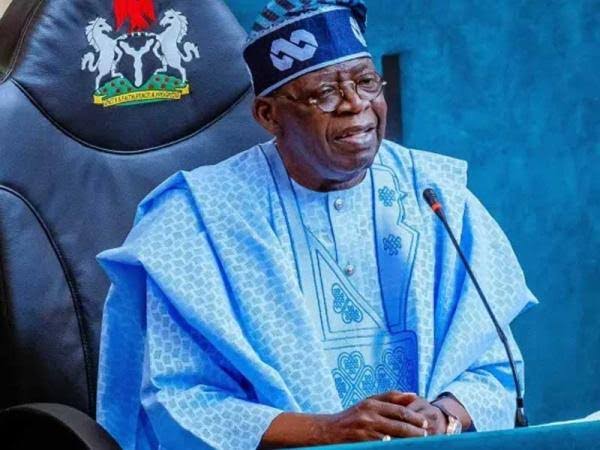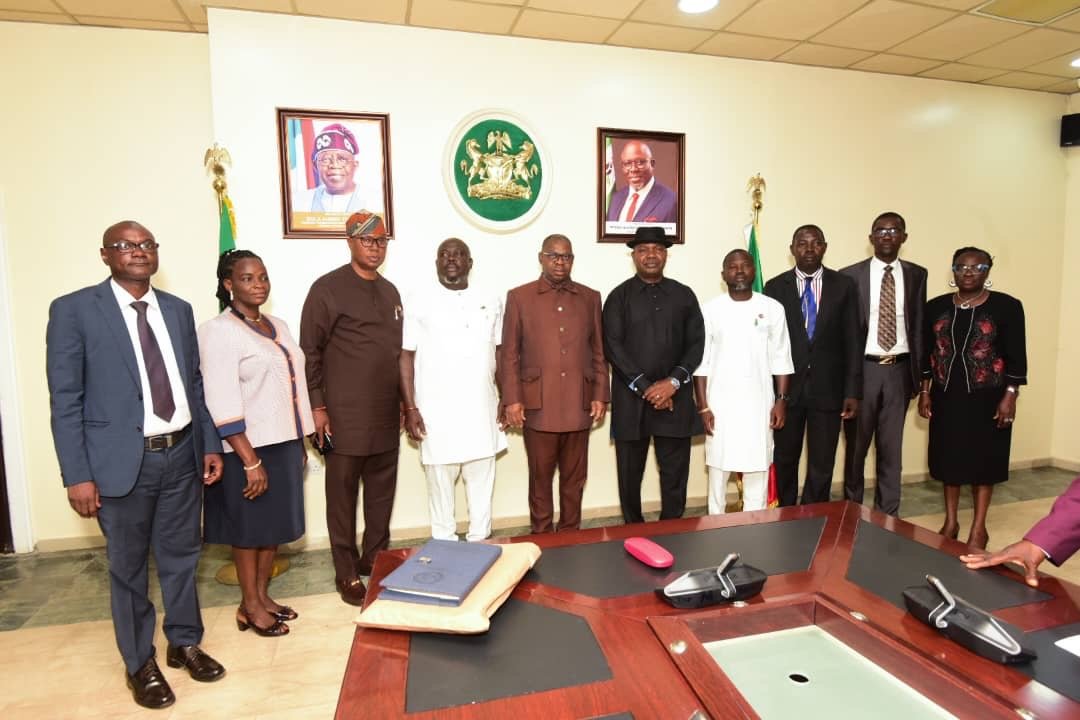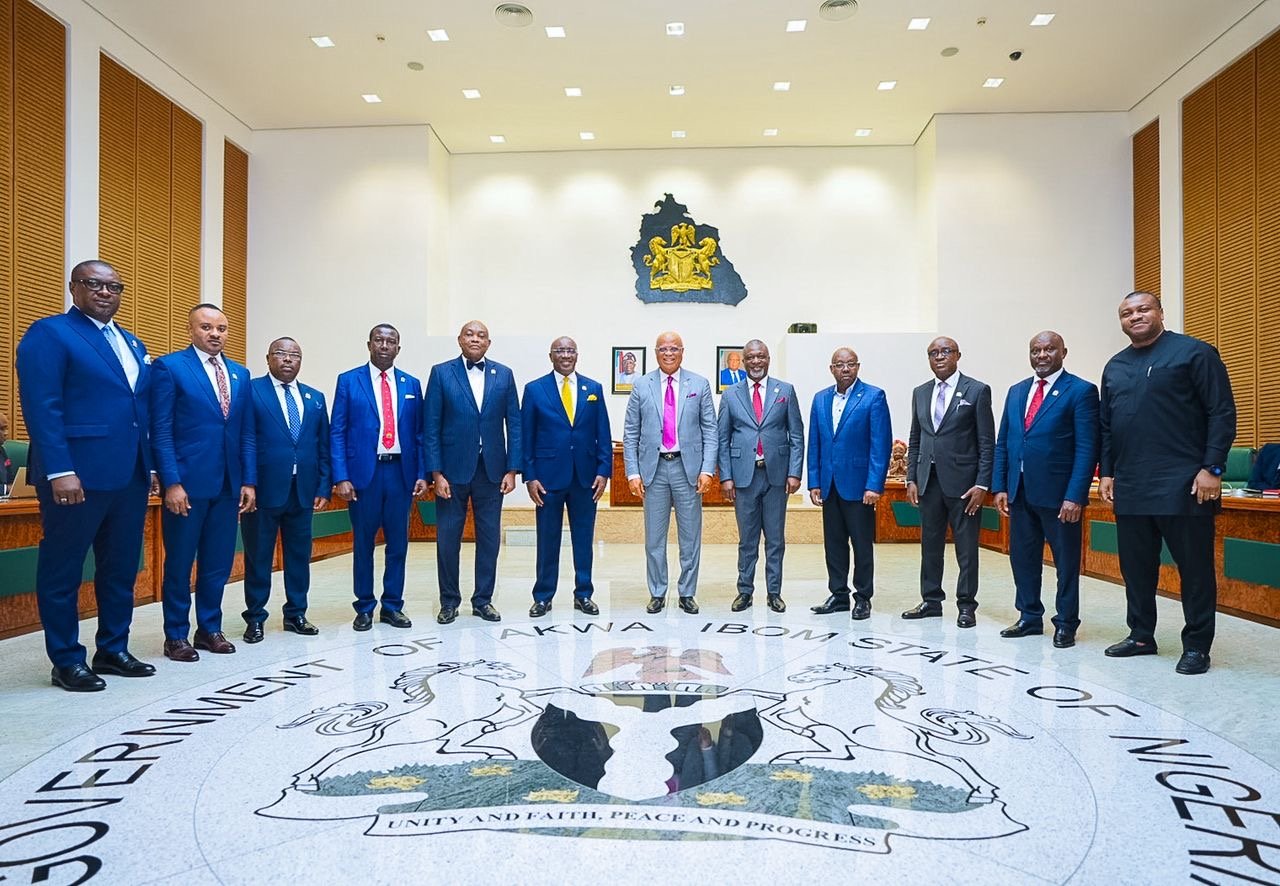President Bola Tinubu .
By Anietie Akpan
A Herculean task awaits the President Bola Tinubu led Federal Government for the next two years as the cost of the Aluminium Smelter Company of Nigeria (ALSCON) closure since 2013 soars to N13.67tn ($8.542bn).
An economics expert told Pillar Today that this frightening cost is hinged on the present rate of Aluminium cost in the International market plus value added activities which cut accross logistics, and others.
Already gas suppliers who would have engaged more hands, suppliers of Materials and spare parts even to smaller aluminum companies in host state, Akwa Ibom, neigbhouring states like Cross River, Rivers, Abia and the entire country that would have benefited from ALSCON stimulating many other economic activities are in limbo.
Nigeria is also suffering a yearly loss of over N54.2 trillion annually due to poor privatization deals; closures and total neglect of the nation’s metal industries which included Steel Industries in Ajaokuta, Oshogbo, Delta, Jos and Katsina and even Qua Steel in Eket that was dismantled.
Economists have condemned this neglect of ALSCON, located in Ikot Abasi, Akwa Ibom state and the soaring cost saying, it is an “absolutely unbeliveable” assault on Nigeria’s economy and sovereignty.
In a brainstorming session of the Expert Council for the Regional Economic Developmen recently in Uyo, the Director of Emerging Knowledge, Policy and Partnership, Institute of Professional Economists and Policy Management, Mr. Friday Udoh, took a look at the cost of continued ALSCON plant closure and described UC Rusal continuous access to the plant as illegal.
Udoh who was also in the management team of Ferrcstaal AG, the Turnkey contractor and developers of the plant disclosed that the plant’s closure when accounting for direct and valued added activities, inluding downstream industries operations, has contracted the economy and has cost the nation about N13.67tn in revenue and productivity in addition to high debt and liabilities incured by UC Rusal in the name of ALSCON.
However the ownership of ALSCON is still lingering despite the July 6, 2012 Supreme Court judgment of Case No. SC. 1212/200 that sacked DHL/UC Rusal as owners of ALSCON affirming earlier judgements of the Federal High Court and Court of Appeal that gave ownership of ALSCON to the Dr. Reubin Jaja led BFIGroup.
The Supreme Court had on Friday, January 26, 2024 in a unanimous judgement by Justice Tijani Abubakar, in another case (appeal) filed by the Director General of Bureau of Public Enterprise (BPE), Mr. Sunday Okoh and BPE, reaffirmed its 2012 judgement of handing over the ownership of ALSCON to BFIGroup.
The ownership of ALSCON has been a protracted legal battle between the BFI Group on one side against the UC Rusal of Russia the erstwhile occupant of the plant and the Bureau of Public Enterprise (BPE) on the other before it was shut down in 2013.
The Federal government had in 2004 called for the sale of ALSCON and the $3.2bn plant bid was won following the official declaration of Nigerian/ American firm, BFI Group, a company largely backed and supported by the original plant developers, Messrs.Ferrostaal and some technical members of ALCOA Corporations as the preferred bidder by National Council for Privatization (NCP).
But this was calculatively undermined by the then President Olusegun Obasanjo led administration in favour of Dayson Holding, a Special Purpose Vehicle (SPV) company which UC Rusal uses for ALSCON privatization transaction, a company that was newly registered in Virgin Island for ALSCON privatization exercise.
Udoh said this precarious situation raises questions on whether the two years-old President Bola Tinubu’s government would be able to protect the economy in view of the on-going reforms and the worsening insecurity, especially in Nigeria’s vulnerable regions. At least 11,200 jobs are at stake.
Despite the intrigues over the plant resumption the reality of helpless situation is that it has become a ritual for every successive government to assure of the plant resumption for the fact that the same forces that stood against the amicably resolution of the impasse in favour of BFIG is reinforcing as in every government and as so far infiltrates government mirroring the challenges the present government is facing in reviving the plant.
Agreed, early this year 2025, the Minister of Steel Development, Abubakar Audu, who was on an inspection visit to the plant pledged immediate resolution of ownership issue, gas supply and the dredging of Imo River.
In real sense these are non issues, Udoh said adding that “the real issue is that UC Rusal or its agents has no stake in ALSCON by virtue of the three Supreme Court verdicts not even the fraudulent procured arbitration awards”.
The institute boss wondered whether UC Rusal has any stake in ALSCON. “Obviously, it’s not the amplification of these issues, but the political will of Mr President to act and implement the Supreme Court judgement to the latter.
“We keep wondering the role of UC Rusal in ALSCON since 2012 Supreme Court judgement strips its ownership right”, he said adding, “Then why should the Federal Government negotiate with a company that ruined the economy. As could be seen the closure of the plant have already dealt a serious blow to the country’s national capacity to add value to our abundant natural gas reserves”.
He described Aluminium as an essential ingredients that fuel modern economy most needed in modern industrial society, furthermore its favourable properties (including its light weight, malleability, conductability, and recyclability) drives steadily diversification in its use, including for environmental reasons such as the growing use in modern automobile, aircraft, smart buildings and machines.
Udoh said, “we strongly believe that Mr President can turn around the misfortune of the economy but should take caution to avoid the mistakes of the past government, especially in 1997 when the Voest Alpine Industrial Services submitted a proposal to reactivate, complete the remaining Ajaokuta Integrated Steel plant and manage the plant to break-even at the cost of N42 billion ($490 mn).
Considerably today, Nigeria as country would have been celebrating an increase revenue of not less than N5.71 trillion ($3,564 billion) per annum from Ajaokuta Integrated Steel plant.
The N42 billion at N84 per dollar equals to ($490 million) that was needed then by Voest Alpine which corresponds to N16 billion ($190mn) for acquisition and procurement of equipment and materials for the Ajaokuta Integrated Steel plant refubishing, N17bn ($200mn) for pre-operational expenses and N9bn ($100mn) for working capital to bridge the start-up to break-even.
But the Federal Government refused to implement the Voest Alpine proposal, Udoh said noting that rather it went and signed an agreement with Global Steel Holdings a subsidiary of Accerlor Mittal Group and when the Federal Government defaulted on the contract, Global Steel Holdings took the government to Arbitration and won and $446 million was awarded in their favour.
Sadly today N1.568 trillion ($980mn) being the 200 per cent of the N42 billion ($490 million) proposed by Voest Alpine Industrial Services in 1997, cannot meet the financial needs for completion, upgrading and operation of the Ajaokuta plant cost, he added.
The reality is that Nigeria ended up paying to ArcelorMittal through its group member, Global Steel Holdings N199.81 billion ($446 million) as arbitration settlement for the failure of Federal Government to honour terms set on the agreement.
In particular, automation and insrumentation technologies change with life cycle of plants only 5 to 10 years in global standard and saddly the Ajaokuta just as ALSCON as at today will require more than 200 per cent funding than the pasts to get the plant activated and completed and ready for operation.
He stated that, ALSCON just as Ajaokuta Integrated Steel plant could play important role for economic activity in the vulnerable south-east, south-south and south-west region. Its importance to regional employment, income, and fiscal well-being can’t be overemphasized. But these assets when operational plays important role to the country’s national economy, as much as: making a significant contribution to national exports, and supporting (through its input purchases) output and employment accross industries in every parts of the country.
Nigeria’s position in the global value chain associated with the production and use of aluminium, therefore, has become more precariously concentrated on importation alone,,he said noting that “as a country we have forgone not only jobs, incomes, exports but productivity that would have been earned by adding more value to the resources needed to produce a ton of Aluminium ingot, especially natural gas and the undeveloped natural.resources”.
According to him, the cloud is thickening over the sincerity of the President Tinubu’s led government commitment to strengthen the economy and improve the economic well-being of the nation as the administration marked its second year.
Anietie Akpan, is an investigative and multiple award winning journalist, currently the Editor- in- Chief of Pillar Today Newspapers. He has over 35 years of active practice in The Guardian, Reuters and many other local, National and International news outlets; covering Environment, Energy, Economy, Business, Education, Politics, Health, Human Interest, Crime, Security, ICT and others.
He can be reached through 08037269143. anietieakpann@gmail.com











